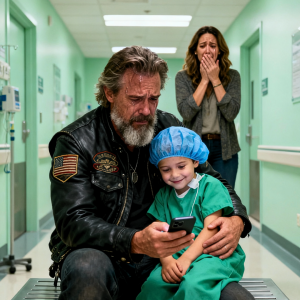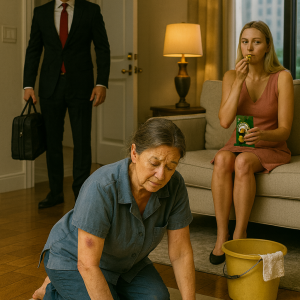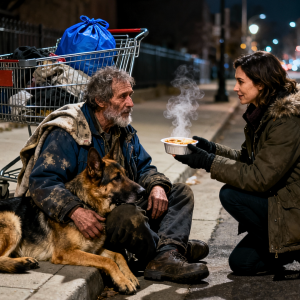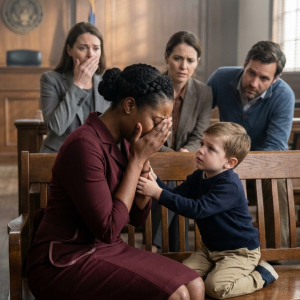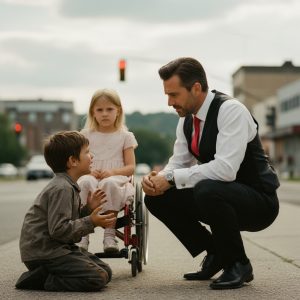
My name is Eleanor Grace Whitmore. I’m eighty years old.
Once, I had everything a woman could want—a devoted husband, a fulfilling job at the public library, a cheerful home in suburban Vermont, and three children I adored. Life felt full, purposeful.
But a decade ago, my husband, Walter, passed away. His heart gave out one quiet October morning, and with him, the warmth left our home. The silence that followed wasn’t just in the walls—it was in the phone that no longer rang, in the mailbox that remained empty. Slowly, I faded into the background of my own life.
Of all my children, it was my youngest, Rachel, who drifted the furthest. She’d always been bright, ambitious—set on a life far beyond small-town simplicity. When she got accepted into Columbia, I was ecstatic. I wanted her dreams to take flight, so I gave her everything: my savings, my grandmother’s pearls, even sold Walter’s vintage Chevy to help with tuition.
Years went by. Rachel built her life in Manhattan—married, had a son—but grew busier and more distant. Our conversations became clipped, irregular, until one day, she showed up unannounced after months of silence.
“Mom,” she began, avoiding my gaze, “you shouldn’t be alone anymore. I found a really great senior facility just outside the city. They’ll take good care of you.”
Her words were polished, rehearsed. I said nothing. I didn’t have the energy to fight. I just nodded.
The next day, she drove me to a pristine retirement residence tucked along the Hudson River. Modern, with trimmed gardens and airy rooms. She signed the documents, kissed my cheek as if sealing the transaction, and left. I sat on a bench under a blooming magnolia tree, trying to absorb what had just happened.

Then something stirred inside me.
You see, years ago, Walter and I had invested in that very property. We’d poured our savings into it with hopes of turning it into a dignified place for aging souls—a sanctuary of grace. He insisted the deed stay in my name, just in case the kids ever forgot us.
I walked into the admin office and introduced myself to the director, a kind young man named David.
“Mrs. Whitmore?” he blinked in surprise. “You own this place.”
“I know,” I said softly. “Let’s make a few changes.”
That night, I called a meeting. I explained the truth and took on a new role—not as a resident, but as the owner. I began organizing art classes, film nights, book readings. My days filled up with laughter, purpose, companionship.

Weeks later, my grandson Luke showed up.
“Grandma, I missed you,” he said, hugging me tightly. “Mom’s upset you don’t return her messages.”
I smiled and kissed his forehead. I wasn’t angry. I had simply chosen to live differently now.
When Rachel tried to visit again, the staff followed my instructions—she was denied entry. I didn’t do it to punish her, only to protect the fragile peace I had rebuilt. I later wrote her a letter:
“Rachel,
I understand why you did what you did. You thought it was for my good—but it was easier, too. Easier than facing your own fear of me growing old. I’m not angry. Just changed. When your heart understands that, my door will be open.”
Months passed. Then one chilly afternoon, I received a letter in Rachel’s familiar handwriting:
“Mom,
I don’t expect forgiveness. But I want you to know—I see it now. I see how much you gave, and how little I returned. I miss you. I miss us.”
Tears I thought had dried long ago slipped down my cheeks.
In spring, I wrote back simply:
“Come.
No need for words. Just come.”
She arrived one rainy morning, thinner, paler, unsure. I walked up, embraced her. Neither of us spoke. The silence healed what words never could.

Now, Rachel visits every week. She bakes for the residents, reads aloud to the lonely. We’ve begun again—not as mother and daughter, but as two women finding their way back to each other.
And when she asked me to return home, I told her the truth:
“I belong here. Not as someone to be looked after—but as someone who makes a difference.”
We hugged again. This time, without regret. Only love.
